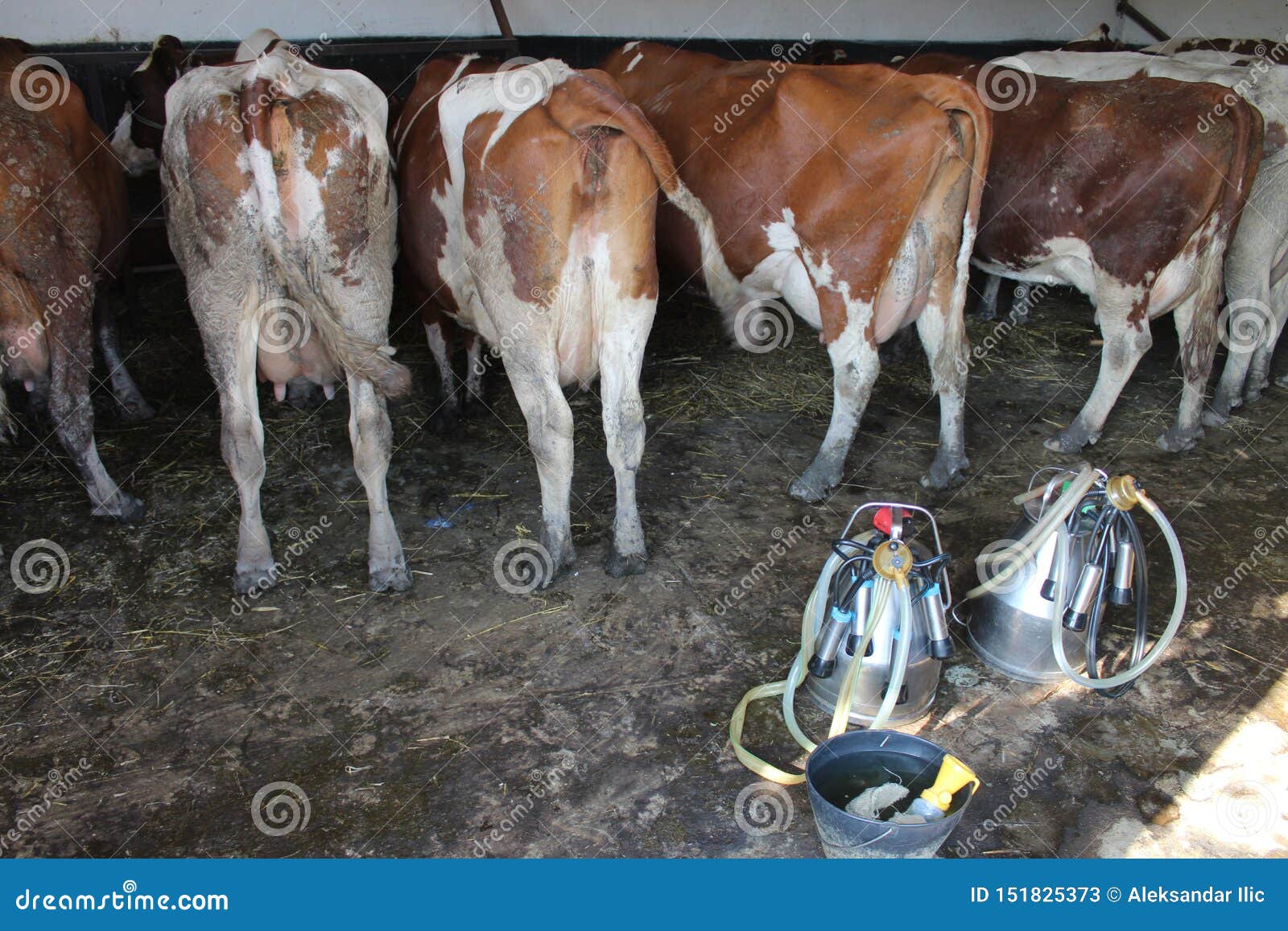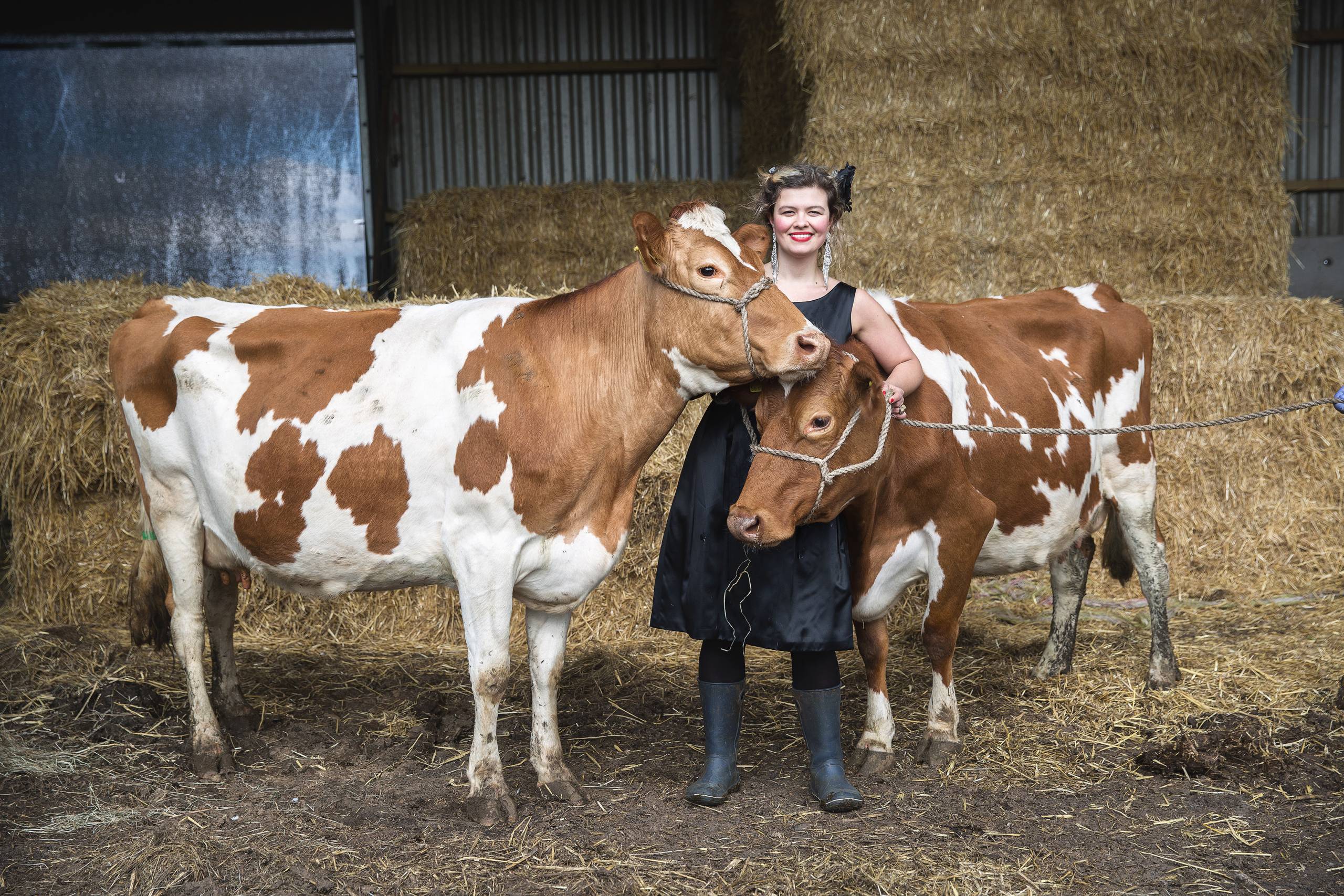Can Women Be Milked Like Cows? Debunking Myths And Understanding The Science Behind Human Lactation
Human lactation is a fascinating biological process that has intrigued scientists, researchers, and the general public for centuries. The idea of "can women be milked like cows" is often a topic of curiosity and debate, but it is essential to approach this subject with scientific accuracy and respect for human biology. By understanding the complexities of lactation, we can separate fact from fiction and appreciate the incredible capabilities of the human body.
While the concept of milking women like cows may sound absurd, it stems from a misunderstanding of how lactation works in humans. In this article, we will explore the science behind human lactation, its differences from animal lactation, and the ethical considerations surrounding this topic. Our goal is to provide you with accurate, well-researched information that respects both biology and human dignity.
Through this comprehensive guide, we will address common misconceptions, discuss the biological mechanisms of lactation, and highlight the importance of understanding human physiology. By the end of this article, you will have a deeper appreciation for the intricacies of human lactation and why comparing it to animal lactation is both scientifically inaccurate and ethically inappropriate.
Read also:Exploring The World Of Usunny Kitsune A Comprehensive Guide
Table of Contents
- Introduction to Lactation
- The Biology of Lactation
- Common Myths About Lactation
- Ethical Considerations
- Health Benefits of Breastfeeding
- A Scientific Perspective on Human Lactation
- Misconceptions Debunked
- Statistics and Data
- Conclusion
Introduction to Lactation
Lactation is a natural biological process that occurs in mammals, including humans, to nourish their offspring. The ability to produce milk is a key characteristic of mammals, and it plays a vital role in the survival and development of newborns. While lactation is a common phenomenon across species, the mechanisms and purposes of lactation differ significantly between humans and animals.
When discussing whether "can women be milked like cows," it is crucial to recognize the physiological, anatomical, and ethical differences between human and animal lactation. Human lactation is specifically designed to meet the nutritional needs of human infants, while animal lactation serves different purposes depending on the species.
The Biology of Lactation
How Lactation Works
Lactation begins during pregnancy when hormonal changes prepare the mammary glands for milk production. The primary hormones involved in this process are prolactin and oxytocin. Prolactin stimulates the mammary glands to produce milk, while oxytocin triggers the release of milk during breastfeeding.
Once the baby is born, the suckling action stimulates the release of these hormones, creating a feedback loop that ensures milk production continues as long as the baby nurses. This process is highly regulated and tailored to the specific needs of human infants, ensuring they receive the optimal balance of nutrients, antibodies, and growth factors.
Human vs Animal Lactation
While both humans and animals produce milk, there are significant differences in the composition, production, and purpose of the milk. Human milk is specifically designed for human infants, containing a unique blend of nutrients, antibodies, and enzymes that support their growth and development.
Read also:Marcello Adamo The Rising Star In The Music Industry
In contrast, cow's milk is formulated for the rapid growth of calves, which have different nutritional requirements than human babies. Attempting to equate human lactation with animal lactation not only ignores these biological differences but also raises ethical concerns about the treatment of women and animals alike.
Common Myths About Lactation
There are several myths surrounding lactation that can lead to misunderstandings and misconceptions. One of the most persistent myths is the idea that women can be milked like cows. This misconception often arises from a lack of knowledge about the biological and ethical aspects of lactation.
- Myth 1: Human lactation is similar to animal lactation. Fact: Human milk is uniquely suited to the needs of human infants and cannot be compared to cow's milk or other animal milks.
- Myth 2: Lactation is a purely mechanical process. Fact: Lactation involves complex hormonal interactions and emotional connections between the mother and child.
- Myth 3: All women can produce milk easily. Fact: Lactation can be influenced by various factors, including health, nutrition, and stress levels.
Ethical Considerations
Discussing the topic of "can women be milked like cows" raises important ethical questions about the treatment of women and animals. The comparison between human and animal lactation is not only scientifically inaccurate but also disrespectful to women and their bodies.
It is essential to approach this subject with sensitivity and respect, recognizing the dignity and autonomy of women. Additionally, we must consider the ethical implications of animal agriculture and the treatment of animals in the dairy industry.
Health Benefits of Breastfeeding
Benefits for Babies
Breastfeeding provides numerous health benefits for babies, including:
- Enhanced immune system due to antibodies present in breast milk.
- Optimal nutrition tailored to the specific needs of the infant.
- Reduced risk of infections and chronic diseases later in life.
Benefits for Mothers
Breastfeeding also offers significant benefits for mothers, such as:
- Reduced risk of postpartum depression and certain cancers.
- Improved bonding and emotional connection with the baby.
- Facilitation of postpartum weight loss and uterine recovery.
A Scientific Perspective on Human Lactation
From a scientific perspective, human lactation is a highly specialized process that has evolved over millions of years to ensure the survival and well-being of human infants. The milk produced by human mothers contains a unique combination of nutrients, growth factors, and immune components that cannot be replicated by any other species.
Studies have shown that breast milk plays a crucial role in the development of the infant's immune system, brain, and overall health. By understanding the science behind lactation, we can appreciate the complexity and importance of this biological process.
Misconceptions Debunked
Let us address some common misconceptions about lactation:
- Misconception: Women can produce milk indefinitely. Fact: Milk production depends on the demand created by the baby's suckling and can decrease over time if not maintained.
- Misconception: Breastfeeding is painful for all women. Fact: While some discomfort may occur initially, proper latch and technique can minimize pain.
- Misconception: Formula is always inferior to breast milk. Fact: While breast milk is ideal, formula can be a safe and effective alternative when necessary.
Statistics and Data
According to the World Health Organization (WHO), exclusive breastfeeding for the first six months of life is recommended for optimal infant health. Studies have shown that breastfeeding rates vary significantly across different regions and cultures, with some areas experiencing higher rates than others.
For example, a 2021 report by UNICEF found that global breastfeeding rates have increased in recent years, but disparities still exist between high-income and low-income countries. These statistics highlight the importance of promoting breastfeeding education and support worldwide.
Conclusion
In conclusion, the question of "can women be milked like cows" is rooted in a misunderstanding of human lactation and its biological and ethical implications. By exploring the science behind lactation, we can appreciate the unique capabilities of the human body and the importance of respecting women's autonomy and dignity.
We encourage you to share this article with others and continue learning about the fascinating world of human biology. If you have any questions or comments, please feel free to leave them below. Together, we can promote accurate and respectful discussions about lactation and its role in human health.
For further reading, check out our other articles on human biology, nutrition, and parenting.
Ted Glover: A Comprehensive Look At The Iconic Music Producer And His Legacy
Unveiling The Mysteries Of Albino Dravidians: A Comprehensive Guide
Supergirl Feet: The Ultimate Guide To Understanding And Appreciating

Women Milked Like Cows Telegraph

Women Milked Like Cows Telegraph

Women Milked Like Cows Telegraph